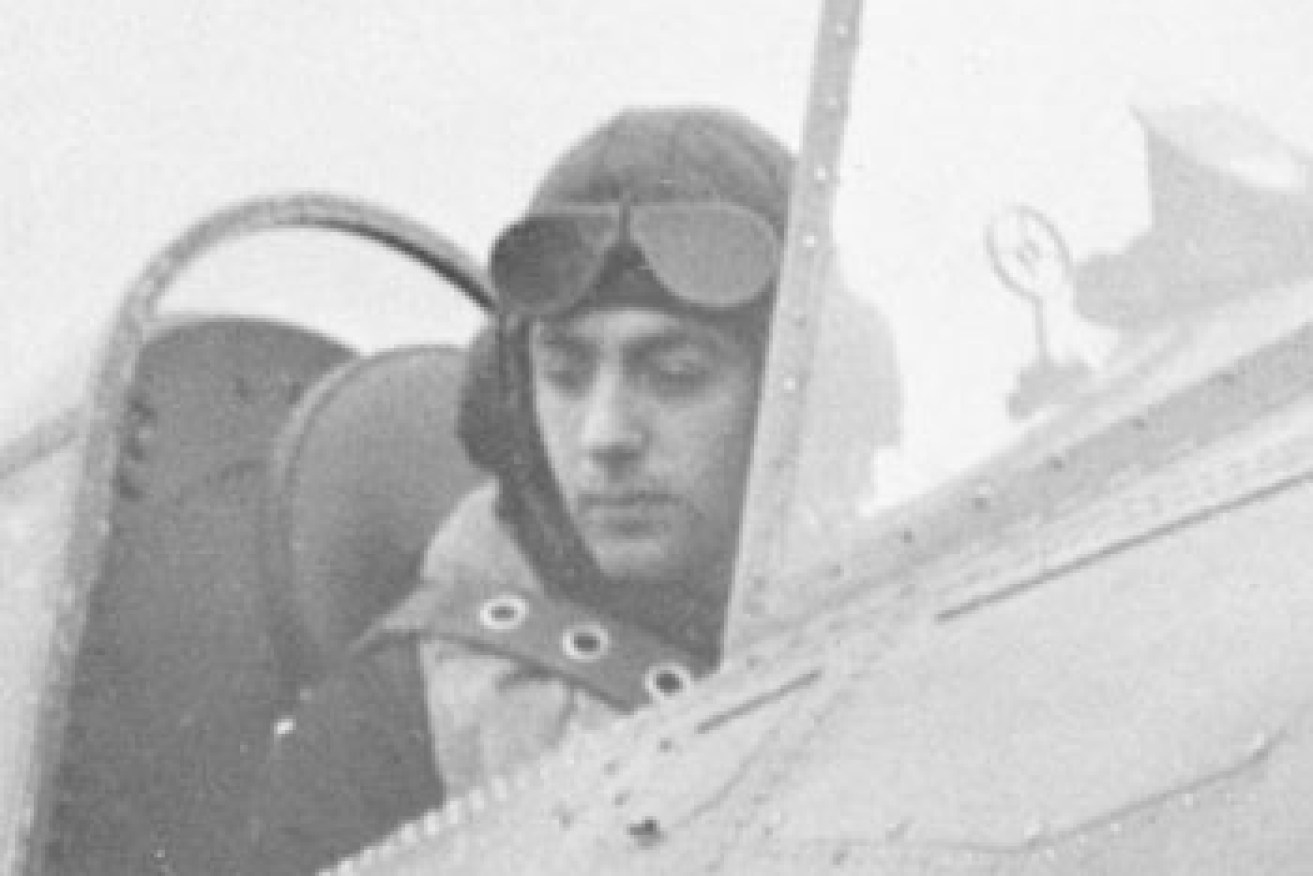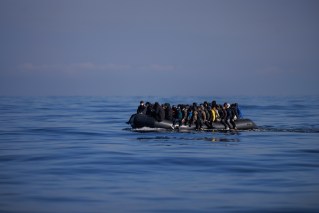Eric ‘Winkle’ Brown, Britain’s ‘greatest pilot’, dies aged 97

ABC/Imperial War Museum
Captain Eric “Winkle” Brown, the pilot who flew more types of planes than anyone in history, has died in Britain at the age of 97.
He has been described as the Scotsman whose real adventures made James Bond’s fictional life seem dull by comparison.
Captain Brown has the world record for flying the greatest number of different types of aircraft – 487.
• Pell calls for inquiry into alleged investigation leak
• A piece of John Lennon sells for $A49,000
• Warnie threatens to quit I’m a Celebrity
He also has the world record for the most flight deck landings – 2407 over the course of 65 years.
Aviation experts say the records set by the Navy test pilot and war hero are unlikely to ever be broken.
Captain Brown was born near Edinburgh in 1919.

Eric Brown landing a de Havilland Sea Vampire on the flight deck of the British Aircraft Carrier HMS Ocean in 1945. Photo: Imperial War Museum
He developed a passion for flying when his father took him for his first flight in a biplane as a young child.
“I would be about 10 years of age, much to my mother’s absolute horror,” Captain Brown told the BBC in the 2015 documentary, Britain’s Greatest Pilot.
“I suppose she wanted to preserve her young son.”
He worked as a diplomat in Germany in the lead-up to World War II, becoming fluent in German and witnessing some of the period’s most significant events.
“I’ve read many stories that said Hitler ignored him (four-time US Olympic gold medallist Jesse Owens),” Mr Brown told the BBC.
“Now this is quite untrue because I actually witnessed Hitler shaking hands with Jesse Owens and congratulating him on what he had achieved.”
At the outbreak of war, Captain Brown joined the Royal Navy Volunteer Reserve as a Fleet Air Arm pilot.
Known as Winkle for his small stature, Captain Brown became renowned for his hardiness and bravery.
Remarkably, he lived through 11 plane crashes.
And in 1941 he was one of only two men who survived the sinking of HMS Audacity by a German U-Boat.
“Our carrier reared up. I heard the twang of the hawses holding the aircraft breaking,” he told the BBC.
“The six aircraft just broke loose, moved down the deck into these guys standing there. Oh, it was absolute chaos.”
Just before this disaster, Captain Brown had been identified as a pilot with talent.
“Unknown to me, the captain of the Audacity said I had a facility for deck landing and the Admiralty should make use of it,” he said.
“I got a telegram asking me to undertake a series of trials on various carriers.”
However, flying was not all that Captain Brown experienced.
He witnessed the liberation of the Bergen-Belsen concentration camp, and used his fluent German to interrogate senior Nazis, including the head of the German Luftwaffe, Hermann Goering.
Records unlikely to ever be broken
Antony Grage, the president of the aviation historical society of Australia, has credited Captain Brown as an exceptional pilot.
“He was extraordinary because he flew a very large number of different types of aircraft, mainly during the Second World War and immediately after the Second World War,” he said.
“This was because he was a very accurate flyer. He could land an aeroplane anywhere.”

Captain Eric Brown lived through 11 plane crashes. Photo: Imperial War Museum
Mr Grage said it is unlikely Captain Brown’s records will ever be broken.
“In the days of the Second World War new aircrafts were being designed quite quickly and produced very quickly just because of the urgencies of war,” he said.
“Nowadays war planes, and for that matter civil aircraft, have very long lives.
“They get updated the whole time but still a particular type.”
Captain Brown successfully tested planes considered so dangerous that they were described as suicide missions by his superiors.
His contribution to flight covered everything from transonic flight, analysis of German jets and rocket aircraft, and the first carrier deck-landing of a jet aircraft.
Flying was Captain Brown’s lifelong passion.
“At first when I had to retire I think it was a feeling similar to a drug addict haves when he no longer can get his drugs,” he told the BBC.
“Withdrawal symptoms were fierce for about a year.
“Then I came to terms with it after a year, but it wasn’t easy.”
Captain Brown’s wife Lynn passed away in 1998. They were married for 56 years.
He is survived by his son.
– ABC








